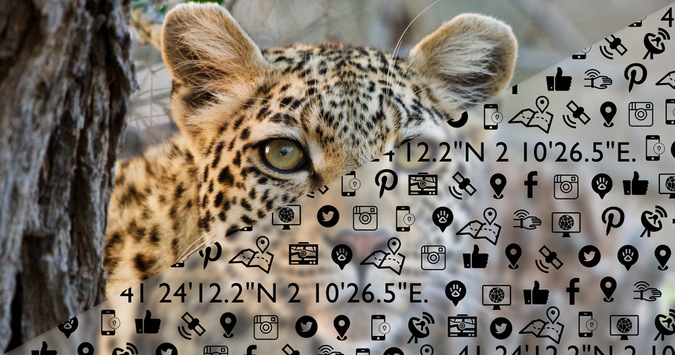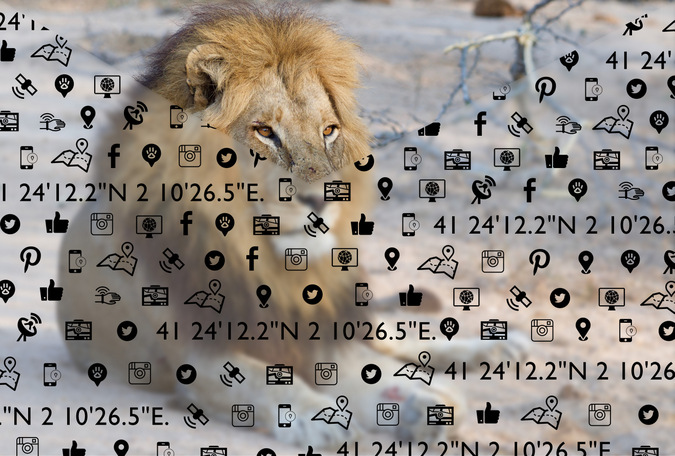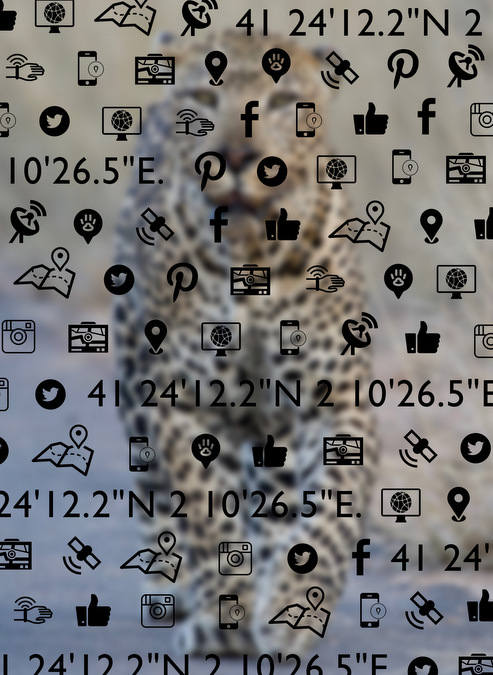
About the author: Sean de la Harpe-Parker is an avid safari fan who is passionate about Africa
We are instantly and globally able to share everything we see in Kruger and just about every other destination on earth. Animal sightings and locations are given in real-time, with immediate upload to a host of social media platforms. Sightings are tracked and animal movements predicted, based on a constant flow of real-time information on this cyber highway – allowing us to plan our own personal safari to maximise the chances of seeing popular species. Certain animals are even given names, to further streamline the process for us.
Kruger game drives are even live-streamed across the globe and viewers are able to go on a sofa safari from their homes.
This current scenario is radically different from not that long ago when photos took days to develop and print and magazines were our only means of seeing what was going in the bush, and publishing cycles meant waiting months for bush news.

So what does the future hold?
This is my forecast for the future – based on my experience with vehicle tracking here in Dubai, and of course on my time spent in Kruger. Technology allows us to track every move of our vehicles – including monitoring speed limits, geographical areas traversed, driving style of our drivers – all based on information submitted by a tiny (matchbox-sized) box to our mobile phones and computers. As these powerful devices get smaller, and battery lives increase, the potential for application to wild animals increases.
And think about this – what happens once we do away with batteries and power these devices off bio-electricity generated by bodies?
Is this not an extremely scary future for our beloved Kruger?
What if we decide to implant this technology in the animals we wish to see in Kruger? Just think about it – the animal will only need to be sedated once in its life, for a lifetime of real-time information and entertainment.
Perhaps we will initially justify doing this because we could use the technology to protect endangered species from poaching. Tracked animals would be under constant surveillance and alerts sent to a smartphone if there is any unusual behaviour, or indeed if the animal’s heart stops beating. Powerful anti-poaching tools indeed!
But then we would undoubtedly start making certain exceptions to the model – for example to raise much-needed funds or improve on wildlife population statistics. And why should private game reserves included with the Greater Kruger area not be permitted to monetise animals currently on their properties, by tagging and tracking them and obtaining sponsorship from well-meaning donors? We all know that this faceless commonage called the Internet is impossible to restrain, and so before long big numbers of animals in the Kruger will be tagged and accessible by everyone with a mobile phone. At the push of a button, every lion, leopard, elephant, pangolin and rhino would be instantly visible and the quickest route to their location generated.
We would be able to accurately predict the timing of a herd of elephants crossing a road, or how best to position a vehicle for a hunting leopard. Our smartphones, using clever algorithms, could even pilot our vehicles or a drone to the sightings and give the best possible views.
Smartphones will have 3D/holographic-projected imaging and one could live-stream your safari event to your family and friends back home as if they were in the car with you. The youth of tomorrow may even choose this kind of safari over a real one because they would be able to switch it off and do something else at the swipe of a finger.
We may even get to a point where people wouldn’t even bother going to Kruger, instead hiring a drone to live-stream the images into their living rooms. I can imagine the technology being so advanced that it would be hard to tell the difference between being in Kruger or having it projected into your living room. With the newer generations wanting more and wanting it yesterday, I imagine this would be their first choice. So perhaps 50 vehicles jockeying for position around an iconic elephant bull would be replaced by thousands of drones hovering overhead like a swarm of bees.
The generation of today will be up in arms telling the children of tomorrow that in their day, they had to go and look for the animals in order to share the sightings in real-time. They would recall having to look at their smartphones to see what had been seen and then go and check if it was still there. The children will of course make derogatory comments about them resisting change and being old-timers stuck in the good old days.
Yes, this technology exists right now – it would simply need a bit of improvement to make the above scenario a reality.
Is this really the future we want for our beloved Kruger? Food for thought indeed.
*This is my perception and may differ vastly from yours. I recognise that each of our realities will be different.

To comment on this story: Login (or sign up) to our app here - it's a troll-free safe place 🙂.![]()






